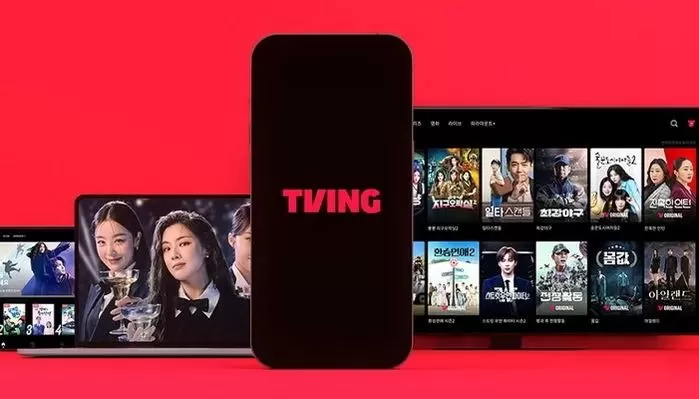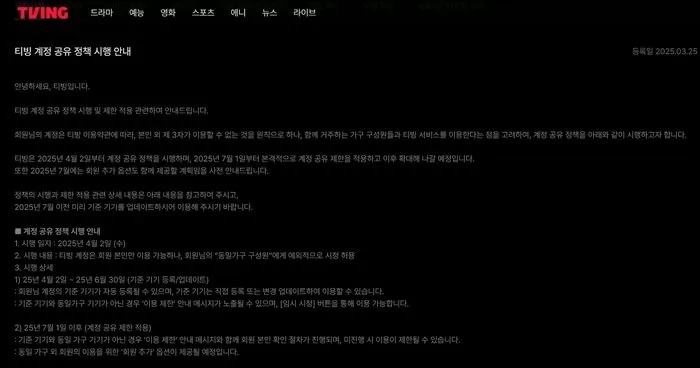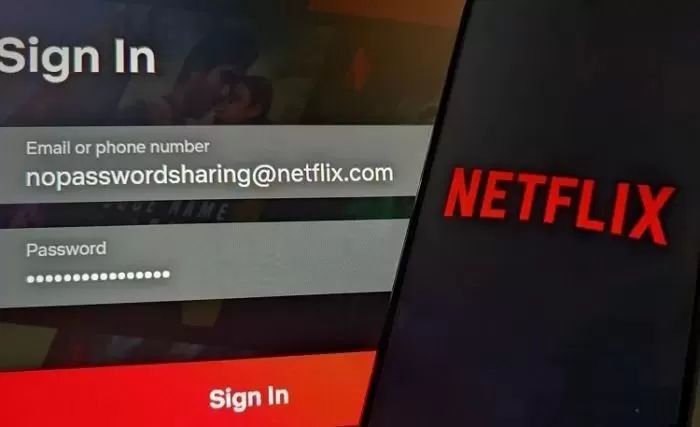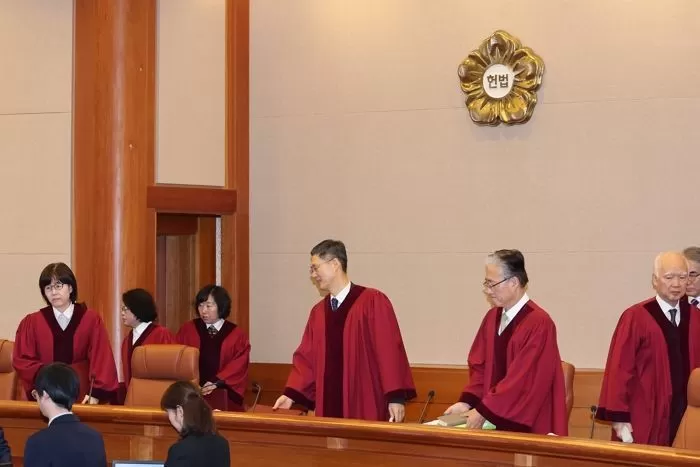Tving Implements Account Sharing Restriction Policy… Following Netflix, Domestic OTTs Strengthen Control
On the 2nd, the domestic online video service (OTT) Tving announced measures to restrict account sharing, following Netflix.
Previously, Tving released an announcement on the 22nd of last month, stating that account sharing would only be permitted for members residing at the same address.
According to Tving, starting today (the 2nd) until June 30, there will be a "grace period" during which a message indicating usage restrictions will be displayed if the device is not belonging to the same household. However, users can utilize the service by pressing the "temporary viewing" button.
But starting July 1, if the device does not belong to the same household, a personal verification process will be initiated, and failure to proceed will result in usage restrictions. Tving plans to offer an additional membership option starting at that time.

With the implementation of the account sharing policy, Tving users must register their primary devices manually from the 2nd until June 30.
The primary device refers to the main device (based on IP) used by the user’s household to watch Tving with their account.
Consumer Complaints Flood In Over Tving Account Sharing Restrictions
In response to these measures, the Korean Consumer Agency Council issued a statement today, saying, "Tving's unilateral change in the account sharing policy is a deceptive act against consumers," and warned that they would respond strongly if not corrected.

The council pointed out that this policy was unilaterally notified via email without prior consent from users and that it was retroactively applied to users who had already paid for annual membership plans.
Additionally, the council stated, "The existing Tving plans were designed based on the number of devices that could be viewed simultaneously, and they have effectively tolerated or encouraged account sharing outside the household." They argued that enforcing such a significant change to existing contracts without compensation is a clear violation of the contract and undermines fair trading practices.
They added, "Although Tving decided to postpone the enforcement of the account sharing change policy to July in response to consumer backlash, this is merely a temporary measure."
The council has demanded that Tving maintain existing account sharing conditions during the contract period, notify of policy changes at least 30 days in advance and obtain explicit consent, ensure transparency in technical measures such as IP tracking, and provide reasonable compensation for early termination.

Earlier, Netflix had already been enforcing restrictions on account sharing in the domestic market since January of this year.
Even among family members, if they do not use the same IP, account sharing is prohibited.
Since the account sharing restriction, Netflix has seen an increase in new subscriptions.
Tving's action indicates that domestic OTTs are now seriously moving to crack down on account sharing activities, following Netflix.
The OTT industry anticipates that while account sharing restrictions may cause dissatisfaction among some users in the short term, similar to the case of Netflix, they will ultimately help secure paid subscribers and improve profitability in the long term.
Image source: Tving, Tving website screenshot image, material photos for better understanding of the article / beebom


